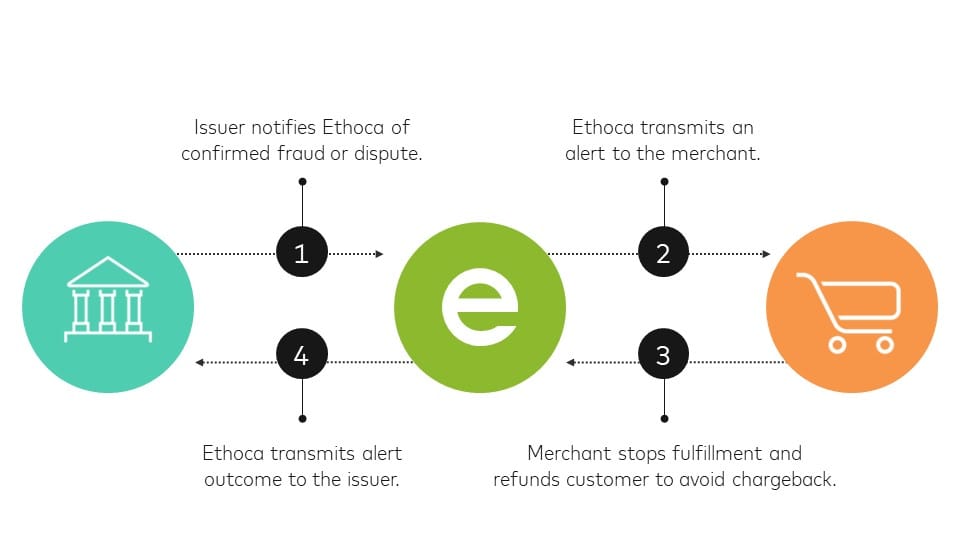
In today's competitive business world, networking has become an essential skill for professionals in every industry. Whether you're a recent graduate looking to kickstart your career or an experienced professional aiming to advance in your field, building a strong network can open doors to new opportunities, valuable connections, and important industry insights. But how exactly do you network effectively in your industry? In this blog post, we will explore the strategies and techniques that can help you navigate the world of professional networking, from identifying key players in your industry to utilizing your network effectively. We will also address common challenges that professionals face when networking and provide insights on how to overcome them. So, if you're ready to take your career to the next level, let's dive in and learn how to network in your industry!
Understanding the Importance of Networking
Networking is more than just exchanging business cards at events or connecting with professionals on social media. It is a strategic and purposeful activity that can have a significant impact on your career growth and professional development. Understanding the importance of networking is the foundation for building a successful network in your industry.
Why is Networking Important?
Opportunity Expansion: Networking opens doors to a wide range of opportunities that may not be readily available through traditional job search methods. By building connections with industry professionals, you increase your chances of learning about job openings, projects, collaborations, and other valuable opportunities.
Access to Knowledge and Insights: Networking provides access to a wealth of knowledge and insights from experienced professionals in your field. By connecting with industry leaders, mentors, and peers, you can tap into their expertise, gain industry-specific insights, and stay updated on the latest trends and advancements.
Career Advancement: Building a strong network can significantly enhance your chances of career advancement. Opportunities for promotions, new job roles, and higher positions often come through referrals and recommendations from trusted connections within your network.
Building a Reputation: Networking allows you to showcase your expertise, skills, and accomplishments to a wider audience. By actively engaging with professionals in your industry, you can establish a positive reputation and increase your visibility, which can lead to more professional opportunities and recognition.
Support and Encouragement: Networking provides a support system of like-minded professionals who understand the challenges and aspirations of your industry. They can offer advice, guidance, and emotional support, helping you navigate through career obstacles and providing encouragement along the way.
Setting Networking Goals
To make the most of networking, it's important to set clear goals. Consider the following questions:
- What are your short-term and long-term career objectives?
- What specific industry connections do you want to establish?
- Are there certain events or organizations you want to be a part of?
- What skills or knowledge are you seeking to gain through networking?
- How can networking help you overcome current career challenges?
By defining your networking goals, you can focus your efforts and ensure that your networking activities align with your professional aspirations.
The Power of Authenticity and Reciprocity
Authenticity is key when it comes to networking. Building genuine connections based on mutual respect and shared interests is more likely to yield fruitful results. Networking is not about using people solely for personal gain, but rather about creating mutually beneficial relationships.
Reciprocity is another important aspect of networking. It involves giving as much as you receive, whether it's offering advice, sharing resources, or providing support to your network connections. By being generous and helpful, you strengthen your relationships and build a reputation as someone who adds value to others.
In the next section, we will explore how to identify key players in your industry to expand your network further.
Identifying Key Players in Your Industry
To build a strong network in your industry, it's crucial to identify the key players who can have a significant impact on your professional growth. These individuals can include industry leaders, potential mentors, and peers who share similar goals and interests. By connecting with these key players, you can gain valuable insights, establish meaningful relationships, and expand your network further. Let's explore how to identify and engage with these important individuals.
Researching Industry Leaders
Industry Publications and Websites: Stay updated on industry news and trends by regularly reading industry publications, websites, and blogs. These platforms often feature interviews, profiles, and articles about influential individuals who are making a significant impact in your field.
Conferences and Events: Attend industry conferences, trade shows, and events where prominent professionals in your industry are likely to be present. These gatherings offer an excellent opportunity to connect with industry leaders, listen to their presentations, and engage in meaningful conversations.
Professional Associations and Organizations: Join relevant professional associations and organizations in your industry. These groups often provide networking events, workshops, and conferences where you can meet and interact with key players in your field.
Social Media and Online Communities: Utilize social media platforms like LinkedIn, Twitter, and industry-specific online communities to identify and connect with industry leaders. Follow their profiles, engage with their content, and join relevant discussions to establish a presence within your industry's digital community.
Recognizing Potential Mentors
Seeking Recommendations: Ask colleagues, professors, or trusted professionals in your network for recommendations on potential mentors. They may be able to suggest individuals who have a track record of guiding and supporting others in your industry.
Industry Mentoring Programs: Research if there are any mentoring programs or initiatives within your industry that pair experienced professionals with aspiring individuals. Participating in these programs can provide you with valuable mentorship opportunities and access to influential individuals.
Professional Development Workshops and Seminars: Attend workshops, seminars, or webinars focused on professional development. These events often feature experienced industry professionals who may be open to mentoring aspiring individuals.
Identifying Peers
Online Networking Platforms: Explore online networking platforms and communities specific to your industry. These platforms can connect you with peers who share similar interests, challenges, and goals. Engage in discussions, share insights, and build relationships with these individuals.
Alumni Networks: Connect with alumni from your educational institution who are working in your industry. Alumni networks often provide opportunities for networking events, mentorship programs, and professional development resources.
Industry-focused Meetup Groups: Look for industry-focused meetup groups in your area. These gatherings provide an informal setting to meet and connect with like-minded individuals who are at a similar stage in their careers.
By actively seeking out and engaging with industry leaders, potential mentors, and peers, you can begin to build a strong foundation for your network. In the next section, we will explore strategies for building and strengthening your network through attending industry events, leveraging social media, and maintaining ongoing communication.

Building and Strengthening Your Network
Building and strengthening your network is a continuous process that requires active engagement and effort. It involves attending industry events, leveraging social media platforms, and maintaining ongoing communication with your connections. Let's delve into these strategies in more detail:
Attending Industry Events
Conferences and Trade Shows: Attend industry-specific conferences and trade shows to meet professionals from various organizations and sectors. These events often offer networking sessions, panel discussions, and workshops that provide valuable opportunities to connect with like-minded individuals and industry leaders.
Meetups and Networking Events: Look for industry-related meetups, networking events, and workshops in your area. These gatherings provide a more informal setting to engage with professionals, share experiences, and exchange insights.
Professional Association Events: Join professional associations related to your industry and actively participate in their events and activities. These organizations often host networking events, seminars, and webinars that can help you connect with individuals who share similar interests and goals.
Leveraging Social Media
LinkedIn: Utilize LinkedIn to expand your professional network. Connect with industry professionals, join relevant groups, and engage in discussions. Share valuable content, establish yourself as a thought leader, and reach out to individuals for meaningful connections.
Twitter and Facebook: Follow industry influencers, organizations, and relevant hashtags on platforms like Twitter and Facebook. Participate in conversations, share insights, and connect with professionals who share similar interests.
Industry-specific Online Communities: Join industry-specific online communities and forums where professionals gather to discuss industry-related topics. Engage in conversations, offer insights, and connect with individuals who share your passion and expertise.
Maintaining Ongoing Communication
Regularly Engage with Your Network: Stay in touch with your connections by regularly engaging with them. This can include commenting on their social media posts, congratulating them on professional achievements, or sharing relevant industry news and insights.
Personalized Communication: When reaching out to your network, personalize your messages to show genuine interest and appreciation. Be proactive in offering assistance, sharing resources, and providing support whenever possible.
Networking Follow-ups: Follow up with individuals you meet at events or online to strengthen the relationship. Send a personalized email or connect on LinkedIn, reminding them of the conversation you had and expressing your interest in maintaining contact.
By actively participating in industry events, leveraging social media platforms, and maintaining ongoing communication with your connections, you can build a robust and vibrant network. In the next section, we will explore how to utilize your network effectively by seeking advice and feedback, harnessing opportunities for collaboration, and promoting yourself and your work.
Utilizing Your Network Effectively
Building a network is only the first step. To truly leverage the power of your network, you need to utilize it effectively. This involves seeking advice and feedback, harnessing opportunities for collaboration, and promoting yourself and your work. Let's explore these strategies in more detail:
Seeking Advice and Feedback
Identify Expertise: Identify individuals within your network who possess specific expertise or knowledge in areas relevant to your career or personal development. Reach out to them for advice, insights, and guidance on specific challenges or goals you are facing.
Request Feedback: Seek feedback from trusted connections on your work, projects, or ideas. Their perspectives can provide valuable insights, help you refine your skills, and enhance the quality of your work.
Informational Interviews: Request informational interviews with professionals who are in roles or industries you aspire to be in. Use this opportunity to learn more about their career paths, gain industry insights, and seek advice on how to achieve your career goals.
Harnessing Opportunities for Collaboration
Identify Common Goals: Identify individuals in your network who share similar goals or interests. Explore opportunities for collaboration, such as joint projects, partnerships, or knowledge sharing initiatives. Collaborating with others can expand your reach, increase your visibility, and create mutually beneficial outcomes.
Offer Your Skills and Resources: Be proactive in offering your skills, expertise, or resources to your network connections. This can include volunteering for projects, sharing valuable resources, or providing assistance in areas where you excel. By contributing to the success of others, you strengthen your relationships and open doors for future collaborations.
Attend Networking Events with Collaboration in Mind: When attending networking events, approach conversations with a mindset of collaboration. Seek out individuals who complement your skills or have complementary goals, and explore opportunities for working together in the future.
Promoting Yourself and Your Work
Share Your Achievements: Regularly share your professional achievements, milestones, and successes with your network. This can be done through social media posts, updates on your LinkedIn profile, or a dedicated section on your personal website or portfolio.
Demonstrate Expertise: Establish yourself as an expert in your field by sharing valuable insights, writing blog posts or articles, and speaking at industry events. This positions you as a thought leader and increases your visibility within your network and industry.
Leverage Recommendations: Request recommendations from trusted connections on platforms like LinkedIn. Positive testimonials from colleagues, mentors, or clients can enhance your credibility and attract new opportunities.
Remember, utilizing your network effectively is a two-way street. Be willing to offer support, share knowledge, and contribute to the success of others in your network. In the next section, we will address common challenges that professionals face when networking and provide insights on how to overcome them.
Overcoming Networking Challenges
Networking, while essential, can come with its fair share of challenges. Overcoming these challenges is crucial to ensure that you can maximize the benefits of networking. Let's explore some common networking challenges and provide insights on how to overcome them:
Dealing with Rejection
Don't Take it Personally: Rejection is a natural part of the networking process. Remember that not everyone will be available or interested in connecting with you. Don't take it personally and continue to reach out to other professionals who may be more receptive.
Persistence Pays Off: Be persistent in your networking efforts. Follow up with individuals, attend multiple events, and engage with different platforms. The more you put yourself out there, the higher your chances of finding meaningful connections.
Seek Feedback: If you face repeated rejections, seek feedback from trusted connections on how you can improve your approach. They may provide valuable insights to refine your networking strategies.
Balancing Networking and Work Commitments
Manage Your Time Effectively: Set aside dedicated time for networking activities in your schedule. Prioritize networking events and allocate specific time slots for online networking and communication.
Integrate Networking into Daily Routine: Look for ways to integrate networking into your daily routine. For example, connecting with professionals during lunch breaks, engaging in online discussions during your commute, or attending virtual networking events after work.
Leverage Technology: Utilize technology tools and platforms to streamline your networking efforts. This includes using scheduling apps, automating follow-up emails, and leveraging social media management tools to stay active on multiple platforms.
Navigating Professional Relationships
Be Genuine and Authentic: Building authentic and genuine relationships is key to navigating professional connections. Be yourself, show respect, listen actively, and offer support when needed.
Maintain Professional Boundaries: While networking involves building relationships, it's important to maintain professional boundaries. Avoid overly personal or intrusive conversations, and respect the privacy and preferences of your connections.
Follow Up and Stay Connected: After initial interactions, follow up with your connections to maintain the relationship. Stay connected through occasional check-ins, sharing relevant resources, or meeting up for coffee or virtual catch-ups.
Networking challenges are inevitable, but with the right mindset and strategies, you can overcome them and build a strong and valuable network in your industry. Remember to stay persistent, adapt to changing circumstances, and always strive for meaningful and mutually beneficial connections.
In conclusion, networking in your industry is a powerful tool for career growth, professional development, and access to opportunities. By understanding the importance of networking, identifying key players, building and strengthening your network, utilizing it effectively, and overcoming networking challenges, you can establish a robust network that will propel your success in your industry.


